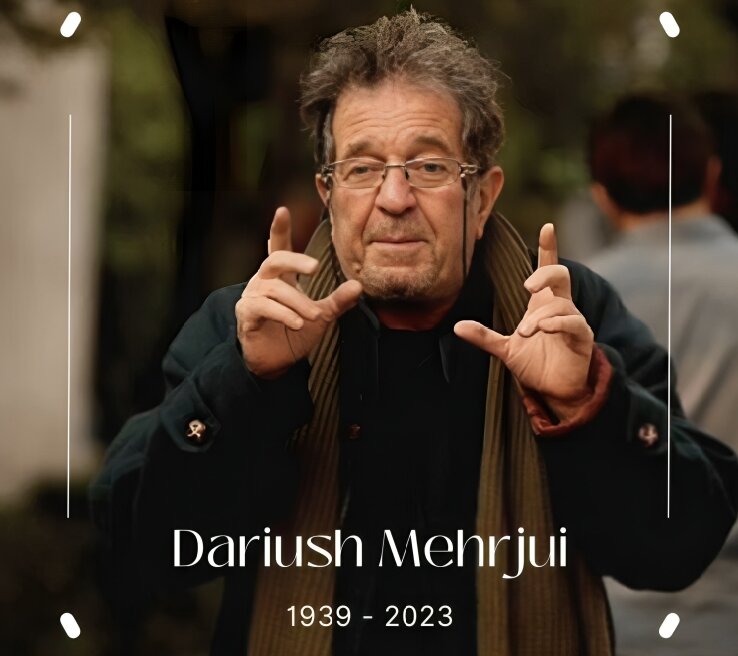Review of Mehrjui’s works at Moscow International Film Festival

TEHRAN-The 46th Moscow International Film Festival, which is underway in the Russian capital, has dedicated a section to review the works of the late Iranian filmmaker Dariush Mehrjui.
Titled “Dariush Mehrjui: The Poetry of Ordinary Life,” the section includes six films by the auteur, namely “Hamoun,” “Cow,” “Pear Tree,” “Leila,” “Pari,” and “Ghosts”.
Mehrjui has always been a bridge between the cultures, literature, and philosophies of the world, as well as film schools. He directed almost three dozen features, worked as a documentary filmmaker, and translated into Farsi philosophical works of Western authors, including neo-Marxists, and modern Iranian writers into English.
According to the festival website, “If you have not watched Mehrjui’s films, you know nothing about the most outstanding phenomenon of Iranian cinema, which remains unsurpassed, according to many Iranian and foreign critics, you know next to nothing about what Iranian cinema was like before the era of realism, you are also unlikely to know anything about the socialist aspirations of Iranian intellectuals which initiated the anti-imperialist and anti-monarchist movement that led to the Islamic Revolution, and you do not know what happened to them and their worldview afterward”.
Born in Tehran in 1939, Mehrjui entered the film department at the University of California in 1959. But studying film directing there did not satisfy him so he transferred to the Faculty of Philosophy, and graduated in 1964. In 1965 he returned to Iran, where his active and famous career as a film director was soon launched. From 1981 to 1985 he lived in France, where he also made movies. Then he returned to Iran.
Almost all of Mehrjui’s films are inspired by either Western or Iranian classics, and sometimes they are a mixture of allusions to books from half the world. But even in the adaptations of books by Western authors, one will always discern the author’s Iranian art language and outlook.
Mehrjui’s films are both existential and romantic. There the viewers will find surrealism and impressionistic play with color and light, almost all the best Iranian actors, including the theatrical ones. He is a master of atmosphere and cinematic poetry; the music of his films captivates and puts the viewers into a trance from the first couple of beats. It is always cinema with a message, cinema as a synthesis of almost all arts, and cinema for viewers of any culture.
His record includes awards from half of the world festivals: Berlin, Tokyo, Venice, Tehran, Chicago again, San Sebastian, and Nantes among others.
Mehrjui was stabbed to death in October 2023 alongside his wife Vahideh Mohammadifar at their home in Karaj, Alborz Province.
This year’s Moscow International Film Festival started on April 19 and will run until April 26. In addition to Mehrjui’s works, four Iranian films and a series will be shown at the event.
“Cold Sigh,” directed by Nahid Azizi Sedigh is Iran’s representative in the Main Competition section. “Gazelle” by Houshang Golmakani is present in the Artcore section. In the Documentary Film Competition section, “Facing the Rook” directed by Sam Kalantari is from Iran. “Taxidermist,” directed by Susan Salamat and Behzad Alavi will compete in the Short Film Competition section. And the crime drama “The Lion Skin” directed by Jamshid Mahmoudi will represent Iran in the serial program of the festival titled “First Series”.
The Moscow International Film Festival is the second oldest festival in the world after the Venice Film Festival. The first Moscow International Film Festival was held in 1935. Back then, it was called the Soviet Film Festival in Moscow. It became regular in 1959 when it was held every second year, alternating with the Karlovy Vary Festival until 1999 when it became an annual event.
This year, over 230 films are shown in the competition and out-of-competition programs of the festival, which is approximately 20% more than last year.
SS/SAB
